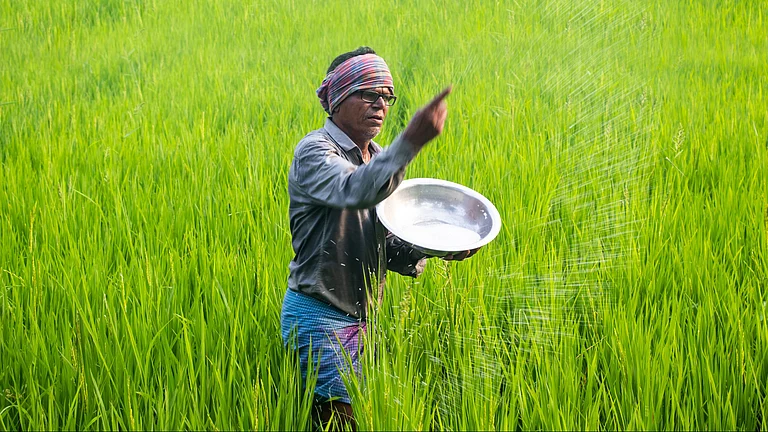The EU on Friday joined the G7 to impose a price cap on Russian oil with an aim to prevent price spikes and starve Vladimir Putin of funding for his war in Ukraine.
The price cap of $60 per barrel will come into effect with an EU embargo on Russian crude oil from Monday.
The embargo will prevent shipments of Russian crude to the EU, which account for two-thirds of imports.
The G7 and Australia said in a statement the price cap would take effect on December 5.
The Russia-Ukraine war has disrupted supply and demand patterns and pushed up energy prices, hurting households, industries, and entire economies of several nations.
Why A Price Cap On Russian Oil Is Being Introduced?
The $60 per barrel cap is intended to cut Russia's oil revenues while keeping Russian crude on the market by denying insurance, maritime services, and finance provided by the Western allies for tanker cargoes priced above a fixed dollar-per-barrel cap. Without insurance, tanker owners may be reluctant to take on Russian oil and face obstacles in delivering it.
What Has Been Russia’s Reaction?
Russia has opposed the move and threatened to stop production in response. However, Russian Foreign Minister Sergei Lavrov said, “we don’t care what the price cap will be. We’ll negotiate with our partners directly.”
Putin has said he would not sell oil under a price cap and would retaliate against nations that implement the measure. However, Russia has already rerouted much of its supply to India, China and other Asian countries at discounted prices because Western customers have avoided it even before the EU embargo.
How The Move Will Affect India?
The $60 per barrel price cap gains significance for India as Russia has emerged as one of the top source of crude oil this year.
India will continue to import crude oil from all sources, including Russia, a senior government official said on Friday.
According to a report in Mint, the official said: “We will continue to buy from wherever we need to buy, including Russia. India has been assured by global oil suppliers that there will be no disruption in supplies."
The price cap is likely to be advantageous for countries like India, China and others major buyers who have been purchasing discounted barrels from Russia. The price cap would give them leverage to push down the price they pay to Russia.
As the conflict has dragged on, the third-largest oil importer first ramped up purchases of the flagship Urals crude, which loads from the western part of Russia, and is now competing for ESPO, a distillate-rich grade.
Russia's share of India's oil imports surged to an all-time high of 23% from 19% the previous month while that of the Middle East declined to 56.4% from 59%, the data showed.
Iraq remained India's top supplier while Russia overtook Saudi Arabia as the second biggest.
Hence, Indian refiners are already getting Russian oil at below or near price cap levels. So, as and when the price caps are imposed it is unlikely to have any negative impact on India's oil imports.
India hopes to convert the current global oil challenges from the Ukraine crisis into an opportunity to secure affordable energy, oil minister Hardeep Singh Puri recently said.
Puri, however, said he was not concerned about disruption to oil supplies post-December 5, adding that India has been rapidly diversifying its crude sources and could buy more oil from the United States, Guyana and other nations in the coming years.
In recent months, Russia has limited discounts on crude oil, hence, India is now turning to Africa and the Middle East instead of Russia due to higher freight rates.
Why A Cap On Russian Oil?
“Crippling Russia's energy revenues is at the core of stopping Russia's war machine,” Estonian Prime Minister Kaja Kallas said, adding that the cap was reduced amounted to $2 billion less for Russia's war chest.
Europe is already mired in an energy crisis, with governments facing protests over the soaring cost of living.
But the West has faced increasing pressure to target one of Russia's main moneymakers — oil — to slash the funds flowing into Putin's war chest and hurt Russia's economy as the war in Ukraine drags into the ninth month.
The USD 60 figure sets the cap near the current price of Russia's crude, which recently fell below USD 60 a barrel. Some criticise that as not low enough to cut into one of Russia's main sources of income.
The price cap comes at a time when Europe is fighting high inflation and at risk of a recession.
Companies and households are reeling from exorbitant energy bills triggered by Russia’s invasion of Ukraine, and the OPEC+ alliance is keeping a tight rein on supply.
“The price cap will encourage the flow of discounted Russian oil onto global markets and is designed to help protect consumers and businesses from global supply disruptions,” US Treasury Secretary Janet Yellen said in a statement Friday.
































